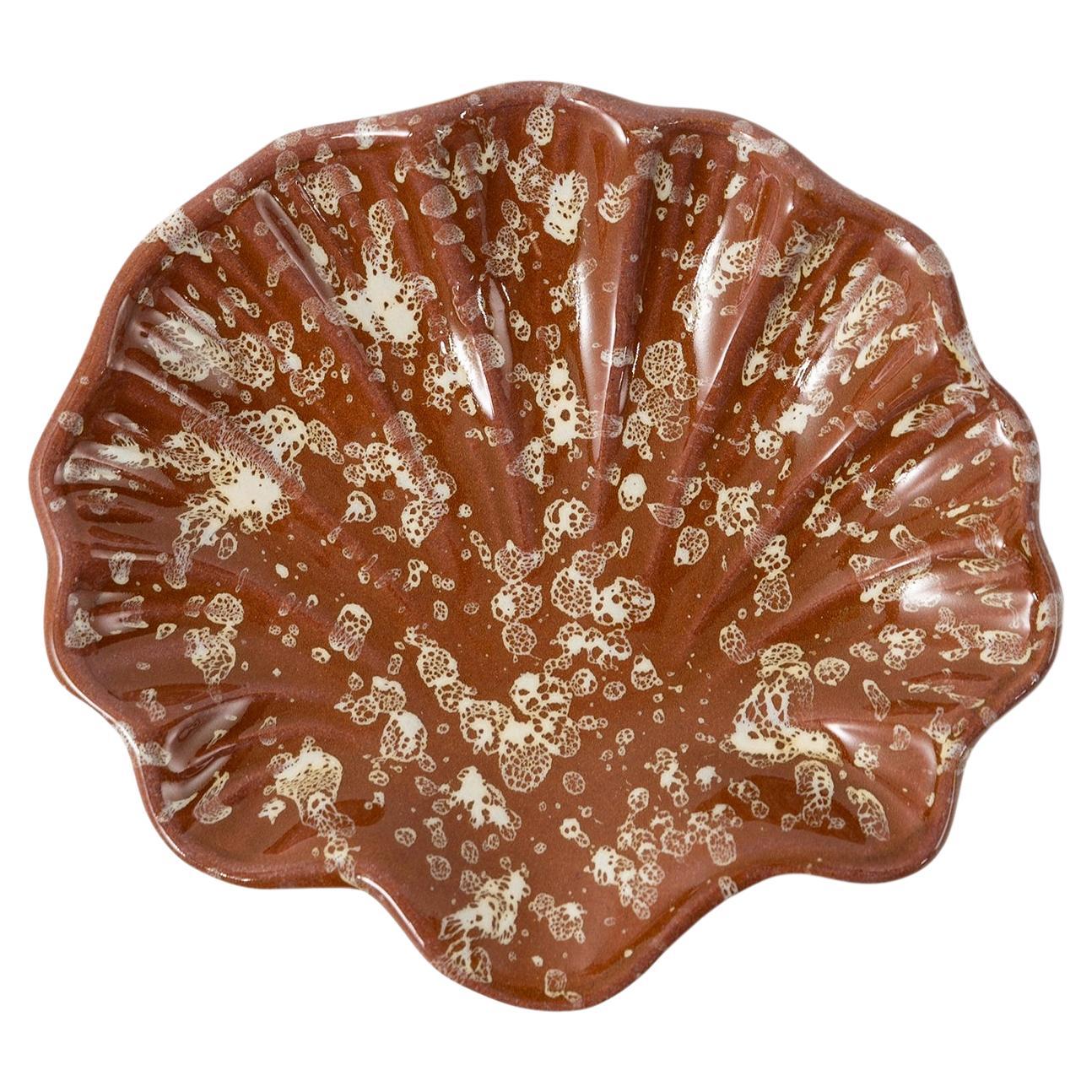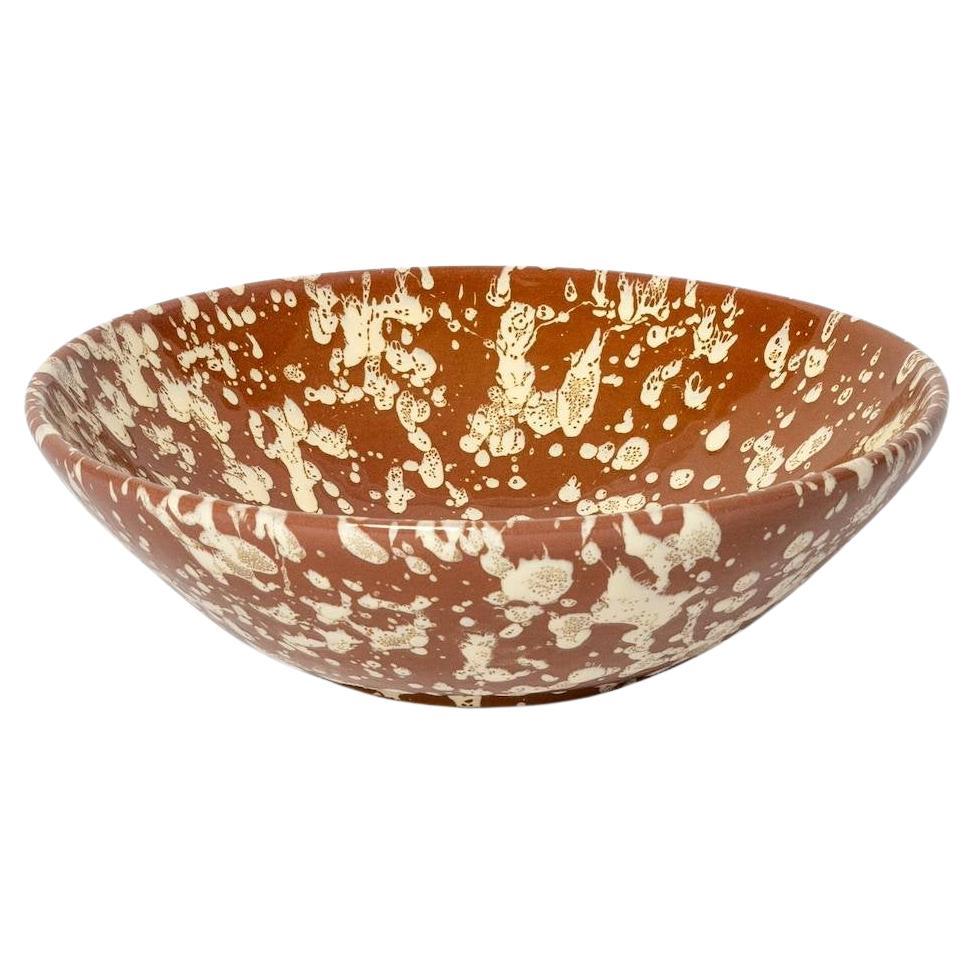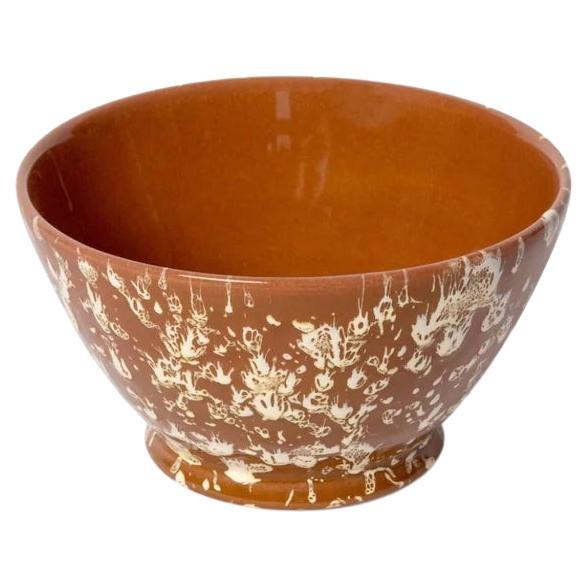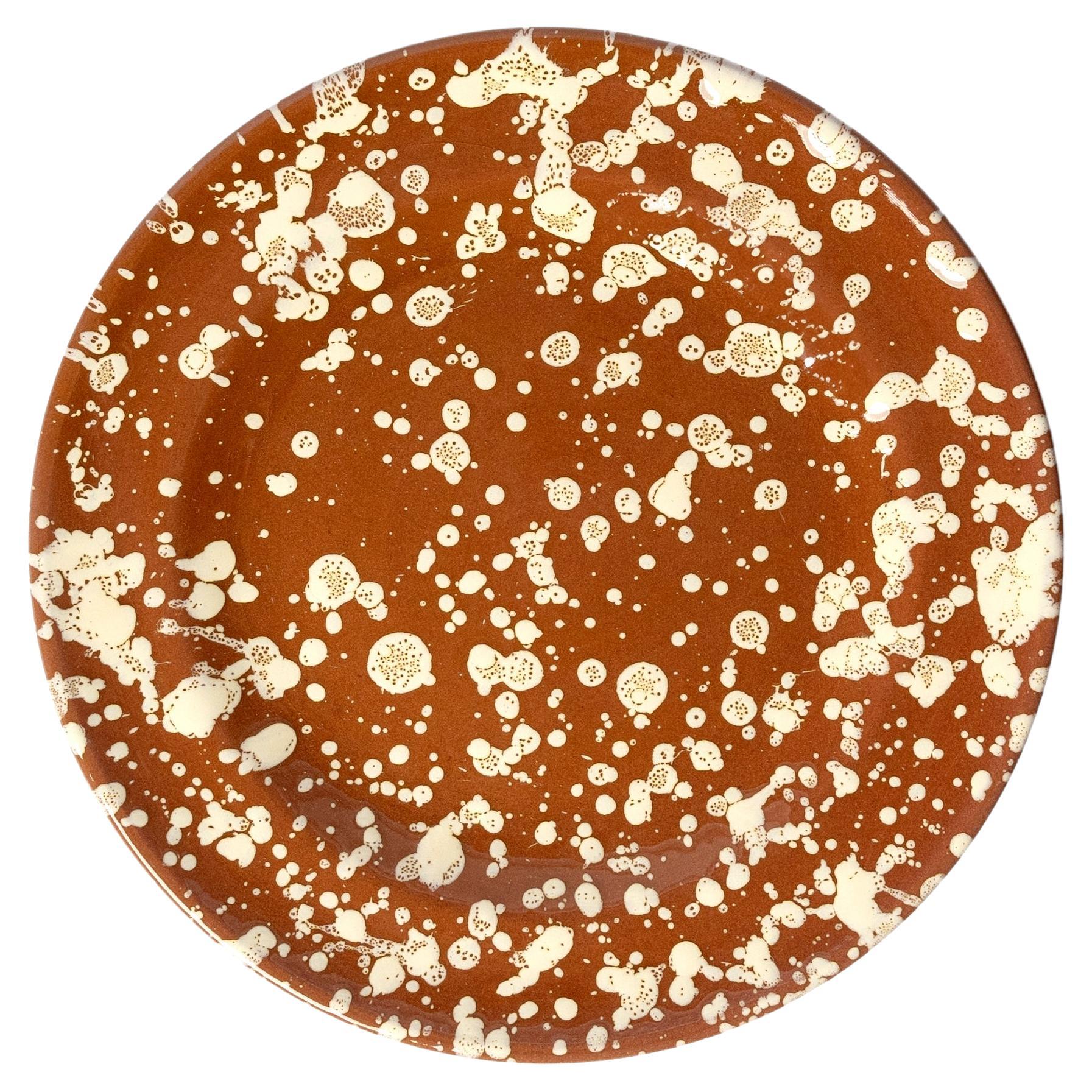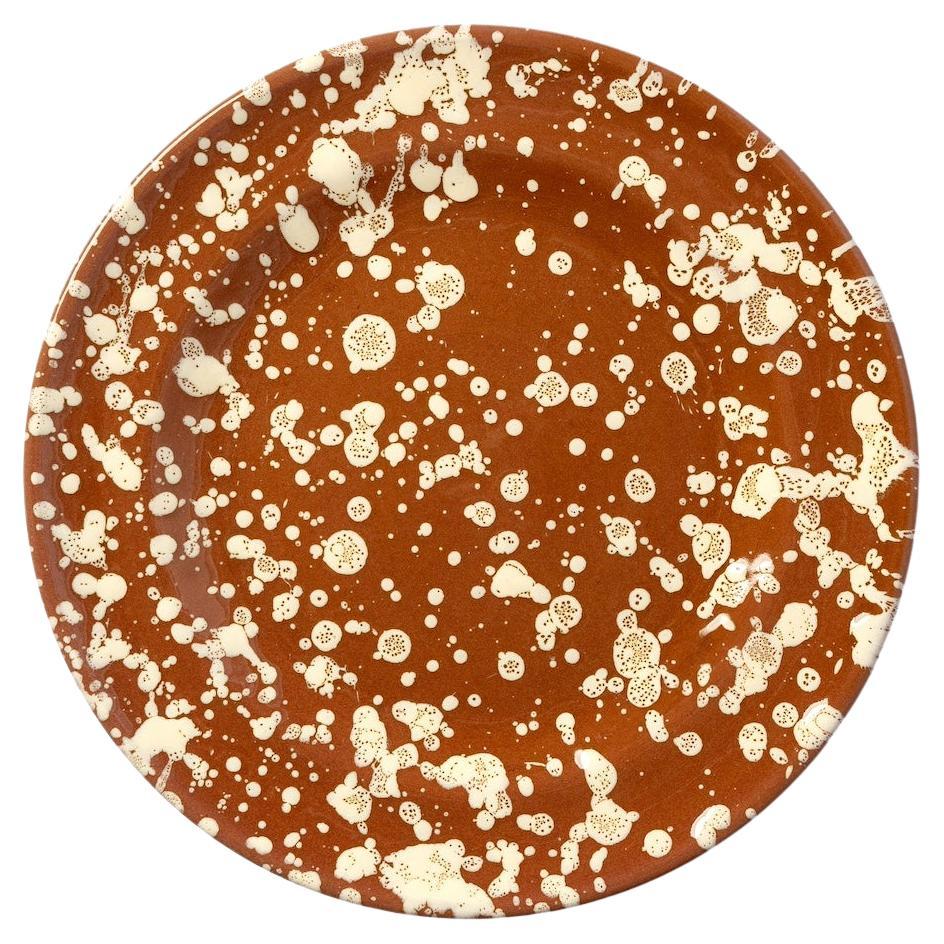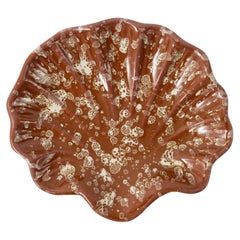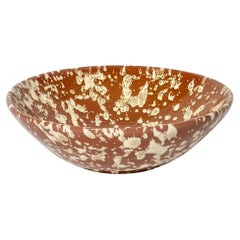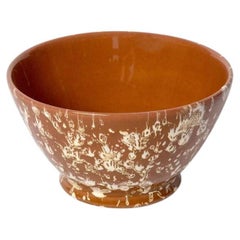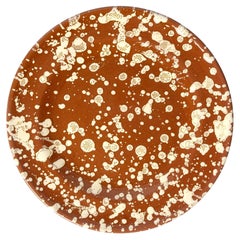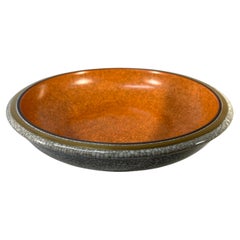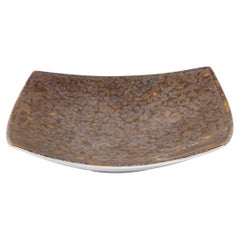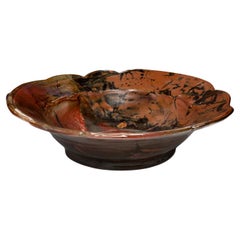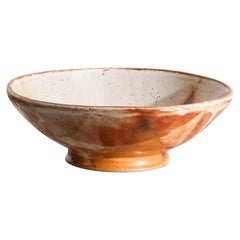Items Similar to Splatter Scallop Dish in Terracotta and Cream
Want more images or videos?
Request additional images or videos from the seller
1 of 6
Splatter Scallop Dish in Terracotta and Cream
$38per item
£28.83per item
€32.97per item
CA$53.08per item
A$59.01per item
CHF 30.81per item
MX$718.33per item
NOK 393.16per item
SEK 368.38per item
DKK 246.05per item
Quantity
Shipping
Retrieving quote...The 1stDibs Promise:
Authenticity Guarantee,
Money-Back Guarantee,
24-Hour Cancellation
About the Item
You know we love a scallop at Sharland England, and our signature scallop dish is too pretty not to add to your collection! Fill it with trinkets, jewellery, olives – or to be honest – nothing at all, it comes in three eye-catching colourways: pink & blue, tan & ivory, yellow and verde and terracotta and cream.
Diameter: 12cm
Diameter: 4.7'
Dishwasher safe.
Founded by fashion journalist Louise Roe, Sharland England is a celebration of all things nostalgic. Elegant wicker, antique chairs & romantic, pleated cushions - every item is thoughtfully handmade. We believe in slow, meaningful design to create beautiful items that last.
- Creator:Louise Roe (English) (Designer)
- Dimensions:Height: 2.37 in (6 cm)Diameter: 4.73 in (12 cm)
- Materials and Techniques:
- Place of Origin:
- Period:
- Date of Manufacture:2023
- Production Type:New & Custom(Current Production)
- Estimated Production Time:Available Now
- Condition:
- Seller Location:London, GB
- Reference Number:1stDibs: LU9024239513702
About the Seller
5.0
Vetted Professional Seller
Every seller passes strict standards for authenticity and reliability
Established in 2021
1stDibs seller since 2023
40 sales on 1stDibs
Typical response time: 17 hours
- ShippingRetrieving quote...Shipping from: PETERBOROUGH, United Kingdom
- Return Policy
Authenticity Guarantee
In the unlikely event there’s an issue with an item’s authenticity, contact us within 1 year for a full refund. DetailsMoney-Back Guarantee
If your item is not as described, is damaged in transit, or does not arrive, contact us within 7 days for a full refund. Details24-Hour Cancellation
You have a 24-hour grace period in which to reconsider your purchase, with no questions asked.Vetted Professional Sellers
Our world-class sellers must adhere to strict standards for service and quality, maintaining the integrity of our listings.Price-Match Guarantee
If you find that a seller listed the same item for a lower price elsewhere, we’ll match it.Trusted Global Delivery
Our best-in-class carrier network provides specialized shipping options worldwide, including custom delivery.More From This Seller
View AllSplatter Coquillage Dish in Terracotta and Cream
By Louise Roe (English)
Located in London, GB
The coastal Italian touch your home has been missing. This little shell dish is perfect placed in an entryway or stashed on a bedside table. Handmade in Italy by artisans and finishe...
Category
2010s Italian Ceramics
Materials
Ceramic
Splatter Bowl, Large, in Terracotta and Cream
By Louise Roe (English)
Located in London, GB
If you’re only buying one piece for the table, it’s got to be one of these. Perfect for salads or pasta, our large splatter bowl looks lovely next to different collections of ceramic...
Category
2010s Italian Ceramics
Materials
Ceramic
Splatter Bowl, Small, in Terracotta and Cream
By Louise Roe (English)
Located in London, GB
Everybody needs a few of these, they’re the perfect size for everything from cereal to salads, crisps or berries. If you can’t decide on a colour, then you might just have to try the...
Category
2010s Italian Ceramics
Materials
Ceramic
Splatter Ceramic Side Plate in Terracotta and Cream
By Louise Roe (English)
Located in London, GB
Finish off your dinner set with our pretty splatter side plates, handmade in Italy, and available in four colourways: pink & blue, tan & ivory, yellow and verde and terracotta and cr...
Category
2010s Italian Dinner Plates
Materials
Ceramic
Splatter Side Plate in Terracotta and Cream
By Louise Roe (English)
Located in London, GB
Finish off your dinner set with our pretty splatter side plates, handmade in Italy, and available in three colourways: pink & blue, tan & ivory, yellow and verde and terracotta and c...
Category
2010s Italian Dinner Plates
Materials
Ceramic
Splatter Dinner Plate in Terracotta and Cream
By Louise Roe (English)
Located in London, GB
We adore these splatter plates because they can be dressed up for a formal occasion, or used everyday for casual suppers. Note: they also look gorgeous ...
Category
2010s Italian Dinner Plates
Materials
Ceramic
You May Also Like
Thorkild Olsen, Royal Copenhagen Terracotta Crackle Matt Glaze Dish #3606
By Thorkild Olsen
Located in Rothley, Leicestershire
Thorkild Olsenl terracotta matt glaze dish for Royal Copenhagen
A large functional piece decorated with gilded band to rim
Circa 1954
Stamped and numbered 3606
Height 2 inch, Diamete...
Category
Vintage 1950s Danish Scandinavian Modern Decorative Bowls
Materials
Porcelain
Midcentury Speckled Bronze & White Porcelain Decorative Dish by Rosenthal
By Rosenthal
Located in New York, NY
This sophisticated Mid-Century Modern decorative dish was realized by the esteemed maker Rosenthal in Germany, circa 1980. It features a square body with rounded sides offering a hig...
Category
Vintage 1980s German Mid-Century Modern Porcelain
Materials
Porcelain
John Glick Plum Street Pottery Ceramic Glazed Bowl/Charger Extra-large
By John Glick
Located in Bloomfield Hills, MI
The ceramic bowl is an example of the kind of work by which John Glick became so famous. He was seduced by the effects of the reduction kiln, which decreased the levels of oxygen during firing, inducing the flame to pull oxygen out of the clay and glazes changing the colors of the glazes depending on their iron and copper content. In this way he achieved the rich gradients of ochre and umber and variations in stippling and opacity. It is signed by the artist and stamped with Plum Street Pottery on the verso.
John was an American Abstract Expressionist ceramicist born in Detroit, MI. Though open to artistic experimentation, Glick was most influenced by the styles and aesthetics of Asian pottery—an inspiration that shows in his use of decorative patterns and glaze choices. He has said that he is attracted to simplicity, as well as complexity: my work continually reflects my re-examination that these two poles can coexist… or not, in a given series. Glick also took influences from master potters of Japan, notably Shoji Hamada and Kanjrio Kawai, blending their gestural embellishments of simple forms with attitudes of Abstract Expressionism. He was particularly drown to the work of Helen Frankenthaler whose soak-stain style resonated with Glick’s multi-layered glaze surfaces, which juxtaposed veils of atmospheric color with gestural marks and pattern. He spent countless hours developing and making his own tools in order to achieve previously unseen results in his work with clay and glaze.
Glick’s “Plum Tree Pottery” (now a designated historic landmark in Farmington Hills, Michigan) studio opened around 1965 and closed in the summer of 2016. It was a private studio space for John and a number of his students and assistants. He believed his shapes evolved guided by forces apparently outside his control. This was instinctual, intellectual and due to his openness to change, fusing into what he thought was the most positive force behind a potter’s approach: evolution and growth. Some have called it inspiration.
John was not only a major figure in the Detroit creative community, but in the ceramics world at large. According to Shelley Selim in her book on John, “John Glick: A Legacy in Clay” John remains: “one of the most recognizable names in the field of studio pottery – known for lecturing, publishing, and offering workshops widely – and his work has been featured in well over a hundred local, national and international exhibitions since he was a college student in the late 1950s.” Along with this John has mentored over thirty studio apprentices over five and a half decades, received numerous grants and awards for his work, and has been prolific, with an estimated 300,000 ceramic wares throughout the world.
He received his Masters from Cranbrook Academy of Art in Bloomfield Hills, Michigan, working with Maija Grotell, a legendary and influential teacher. Grotell was noted for her deep interest in the human connection to nature’s rhythms and patters. These ideas often grounded her dialog with her students including Glick, affecting, a profund and lasting influence on his future work. This famous Art Academy was designed by architect and faculty member, Eliel Saarinen who collaborated with Charles and Ray Eames on chair and furniture design. Numerous creative artists who are alumni of Cranbrook include: Harry Bertoia, Florence Knoll, Jack Lenor Larsen, Donald Lipski, Duane Hanson, Nick Cave, Hani Rashid, George Nelson, Urban Jupena (Nationally recognized fiber artist), Artis Lane (the first African-American artist to have her sculpture, "Sojourner Truth," commissioned for the Emancipation Hall in the Capital Visitor Center in Washington DC), Cory Puhlman (televised Pastry Chef extraordinaire), Thom O’Connor (Lithographs), Paul Evans (Brutalist-inspired sculpted metal furnishings), Eugene Caples (small bronze images/abstract), Morris Brose (Bronze Sculptures), Herb Babcock (blown glass), Larry Butcher (mixed media) and Lauren Anais Hussey...
Category
Late 20th Century American Decorative Dishes and Vide-Poche
Materials
Ceramic
Vintage studio pottery bowl with orange decoration
Located in Malton, GB
This is a very stylish well made 20th century studio pottery bowl. Great hues of orange in the decoration that give this a contmeporary feel. Attractvie size as well.
Height 9cm Dia...
Category
Late 20th Century Ceramics
Materials
Pottery
Earth Colored Stoneware Dish / Plate by Jens von der Lippe, Norway, 1970s
Located in Barcelona, ES
Stoneware dish / plate made by Norwegian ceramic artist Jens von der Lippe. Earth colored wabi-sabi style.
Category
Mid-20th Century Norwegian Scandinavian Modern Decorative Bowls
Materials
Stoneware
Douglas Ferguson for Pigeon Forge Crater Glaze Bowl #5, American Studio Pottery
Located in Clifton Springs, NY
Vintage hand-thrown bowl features complex Crater glaze in off-white and espresso brown colors. Minimal color palette and streamlined shape of the piece allow the textured glaze with variations from semi-matte to high gloss to take the spotlight; asymmetrical biomorphic shape adds hand-crafted, Organic Modern mood to the bowl's design.
The bowl is signed on the bottom with "Pigeon Forge Pottery Tenn".
The Crater glaze has become one of the most recognizable glazes made by the Pigeon Forge Pottery. Often commonly referred to as "Volcanic" or "Lava" glaze, the Crater glaze was developed and made in several colors. We are offering a vase and 4 more bowls in different shapes by Douglas Ferguson, done in variations of Crater glazes, in separate listings.
Douglas Ferguson (1912-1999) was an established Tennessee pottery artist; he received a degree in Art Design Studies from Mars Hill College and worked in the Ceramic Research Laboratory for the Tennessee Valley Authority in Norris, TN, from 1935 to 1947, where he experimented with local clays. In 1946 he started Pigeon Forge Pottery in an old tobacco barn with his wife Ruth and Ernest Wilson, his colleague at the Ceramic Research Laboratory. He formulated many of his own glazes, including crystalline and Crater glaze.
In 1957 he created the Clingman Dome tea set, named by Ferguson for the highest peak in the Great Smoky Mountains, which the state of Tennessee presented to Queen Elizabeth. Ferguson became a member of the Southern Highland Craft Guild in 1948 and remained active until 1998, receiving Life Membership in 1991. He earned two awards from the Tennessee Arts and Crafts Festival in Nashville, received the Rotary Certificate of Distinguished Service, and was featured in books on Appalachian craftspeople by Bernice Stevens, Edward Dupuy and Helen Bullard. In the fall of 1952, Ferguson attended a ceramics symposium by international artists at Black Mountain College; in 1963 he participated in the American Craft Council and the Ceramic National exhibitions. In the 1970s - 80s Ferguson created a fountain with traditional Appalachian quilting...
Category
Mid-20th Century American Mid-Century Modern Decorative Bowls
Materials
Ceramic, Pottery
